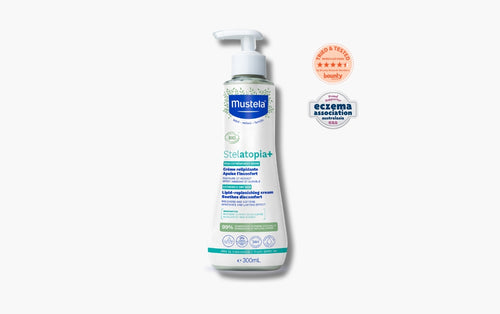Anticipate and respect your baby’s desires
For the first weeks, it goes without saying that you’ll be constantly close to your baby, so offer the breast every time he wakes up. Don’t wait for baby to cry; instead observe the signs indicating that he wants to nurse: if he turns or raises his head, opens his mouth, sticks out his tongue or sucks whatever he comes into contact with, that means he’s ready to nurse.
Let your baby determine how often and how long to nurse as well. Leave him the freedom to decide without setting a pre-determined interval between feeds. Don’t panic or get impatient, whether a feed lasts 10 minutes or 45: some babies are fast, and others like to take their time. And if your baby is born at term and in good health, there’s no need to wake him up for a feed even if he sleeps for six hours straight or more!
Get comfortable
Of course, always remember to wash your hands before nursing. But don’t get carried away with hygiene for your breasts, which would eliminate the antiseptic properties and scent of your nipples and disturb your baby! A shower or two a day is plenty.
Above all, make sure you’re comfortable while nursing. Feeding takes up several hours a day during the first few months, and an uncomfortable position can lead to significant back pain! '
As much as possible, sit in a quiet spot, either lying on your side with your baby facing you or seated leaning against pillows with your baby lying in your arms or, better, on a nursing pillow. The more attentive you are to your own comfort, the more nursing sessions will be a pleasant break for both you and your baby.
Help your baby find the right position
Even if you have a preference, during the first few weeks, regularly give the baby both breasts to establish your milk supply. Let him finish the first breast before offering the other... which he may or may not take. Then switch at the next feed. Above all, pay attention to his position while breastfeeding.
Your baby should be placed so that his face is facing yours and his mouth level with the nipple; he should not have to turn his head. Then place the nipple in front of baby’s mouth, making sure that his head is tilted backwards. Let him open his mouth wide and latch onto the nipple himself, making sure he latches on to the entire areola, not only the nipple. This is essential to avoid the formation of painful cracks and to ensure productive feedings.
Remove your baby gently from the breast if he doesn’t latch on correctly, then stroke the groove between the nose and upper lip (the philtrum) with your nipple. The baby will reflexively open his mouth wide and you can re-offer the breast in a better position.
Finally, make sure that baby’s chin is be right up against the breast so that his nose is free. With these tips in mind, you can simply enjoy this special time with your baby, without setting any time limits or trying to determine how much milk your baby has swallowed. Your little one knows what he needs!
After nursing, care for your baby and your breasts
After the feeding, if your baby hasn’t fallen asleep, place him upright against your shoulder and gently pat his back in case he needs to burp! If the baby falls asleep, you can put him back to bed without waking him up. You should think of yourself after each feed as well. Applying a specific nursing balm to your nipples will help protect their delicate skin.
Check that you are breastfeeding effectively
Don’t worry, your instinct will warn you if there are problems with your breastfeeding! In the first few weeks, always avoid giving a top-off bottle: this could reduce your milk supply, cause your nipples to suffer from less stimulation, and disrupt your baby, making it more difficult for him to nurse effectively.
There are several ways to know that nursing is going well, such as:
- While nursing, your baby sucks eagerly and swallows regularly. Keep in mind that when the baby starts feeding, he’ll swallow each time he sucks, but then less frequently as the amount of milk decreases.
- At the end of nursing, your satiated baby releases your breast and acts drowsy, with his skin a healthy pink and his muscles totally relaxed. Your baby’s diapers are very wet and the baby has four to eight golden yellow and grainy bowel movements each day during the first weeks of life. As time goes on fewer bowel movements occur, sometimes with only one or two a week or even fewer. As long as they remain soft and the diapers are wet with urine, there’s no need to be concerned about constipation.
- Your baby is gaining weight regularly. It’s not necessary, however, to weigh your baby daily or, worse yet, to weigh him before or after each feeding. That would serve no purpose other than to cause you anxiety. If your baby is healthy, the monthly weigh-in by the maternal health nurse is more than sufficient. Still, if it makes you feel better, you can weigh the baby yourself once a week. If you do so more often, the weight fluctuations will be insignificant.
Updated: 17/08/22



















